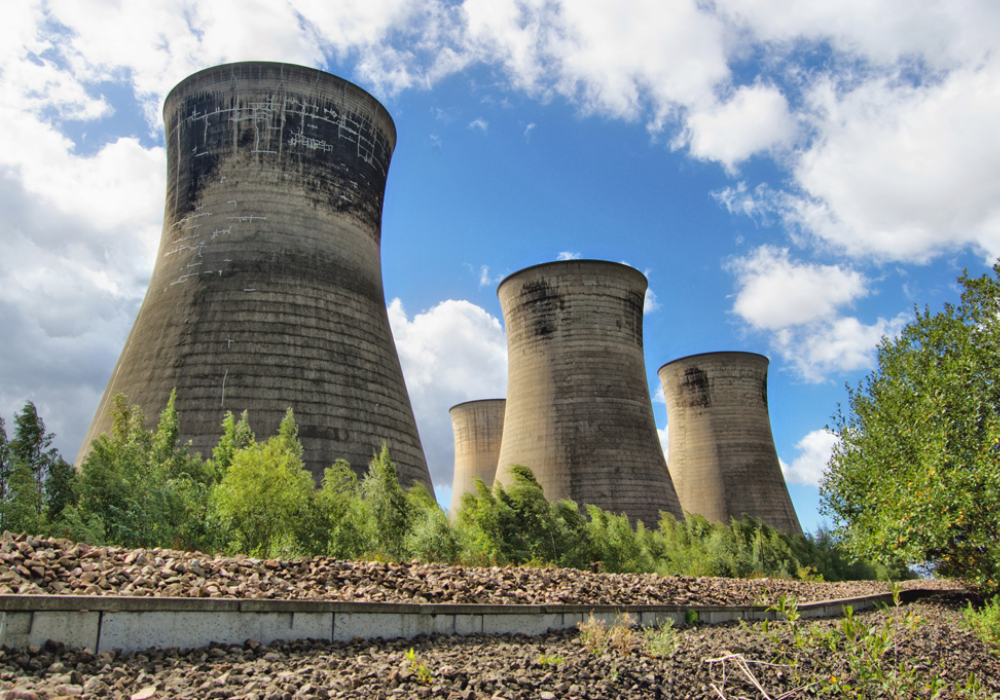Renewable energy delivered 48.5% of the country’s electricity compared to 43% generated by fossil fuels

The wind industry claims current net-zero pledges from G20 countries still put the world on a 2.4C global warming pathway (Credit: Wikimedia Commons/Tom Corser)
More energy was produced in Britain from renewable sources instead of fossil fuels for the first time in 2019, new figures have revealed.
The National Grid highlighted the clean sources delivered 48.5% of the country’s electricity last year, compared to 43% generated by fossil fuels – with the remaining 8.5% produced by biomass.
Over the course of the past 12 months, the UK has moved towards zero-carbon technologies such as wind farms, solar and nuclear energy, alongside energy imported by subsea interconnectors.
CEO John Pettigrew said: “As we enter a new decade, this truly is a historic moment and an opportunity to reflect on how much has been achieved.
“At National Grid, we know we have a critical role in the acceleration towards a cleaner future and are committed to playing our part in delivering a safe and secure energy system that works for all.”
How Britain produced more energy from renewable sources in 2019
The 2019 energy figures arrive at a crucial point for the UK, as 2020 marks the mid-point for the country’s pledge to reduce its emissions compared to levels in 1990.
In June last year, then-Prime Minister Theresa May signed into law its commitment to achieving net zero emissions by 2050 – the first G7 nation to make such a pledge.
Britain’s efforts come as part of a global trend to decarbonise the economy and combat the impact of climate change.
The UK is attempting to clean up the grid by decreasing its reliance on high-polluting fuels, with the government imposing a ban on coal plants in 2018 that will lead to only four being in use past 2025.

Data from National Grid shows that coal accounted for most of the country’s power supply in 1990 – but it has dropped from about 75% 30 years ago to now just 2.1%.
In contrast, wind, solar and hydro have experienced a huge production boom in that same time frame, rising from 2.3% in 1990 to 26.5% in 2019.
In a year when a number of records were set for the grid in the UK, there were new highs of wind and solar power generation, as well as 18 days without electricity usage from coal.
Its greenest day since the industrial revolution took place on 17 August, when just short of 88% of power came from low-carbon sources.
Alongside this, pollution from electricity generation fell to a low of 57 grams of carbon dioxide per kilowatt-hour of power.
National Grid has set out plans to invest almost £10bn ($13.2bn) into the UK’s gas and electricity networks over the next five years, with nearly £1bn ($1.3bn) being earmarked for to net-zero energy generation.
That includes investments in new equipment and technology to help the Electricity System Operator (ESO) operate a net-zero carbon electricity system by 2025, with £85m ($112m) allocated to support the decarbonisation of heat within the gas transmission network.
RenewableUK’s says the milestone is a ‘historic tipping point’
RenewableUK’s director of strategic communication Luke Clark said: “We’ve reached a historic tipping point with low-carbon power outperforming fossil fuels over a period of twelve months.
“This is great news all of us who are committed to reaching net-zero emissions as fast and as cheaply as possible.
“As the new government gets down to work, we’re looking forward to working closely with Ministers to speed up the transition to clean power.
“Wind is playing the leading role in this, generating nearly 20% of our electricity.
“We need to use a wide range of technologies to tackle dangerous climate change, including onshore wind as well as offshore, innovative floating wind and tidal power.”
National Grid figures are a ‘milestone moment’ for energy production in the UK, says Greenpeace
Greenpeace UK’s executive director John Sauven described the figures as a “milestone moment for energy production, as well as our transition to net-zero”.
“It is the product of the plummeting price of renewable technologies like solar and wind coupled with increased energy efficiency,” he added.
“For the good news to continue, investment in renewables must continue to rise and production tripled by 2030.
“But we also need to massively scale up measures to tackle the climate emergency in other sectors too.
“For starters, we need to phase out new petrol and diesel cars and vans, as well as enact a ‘frequent flyer levy’ to contain the demand for aviation.
“We need the government to act on the climate emergency across all sectors if we are to help the world get out of this unfolding climate emergency.”
